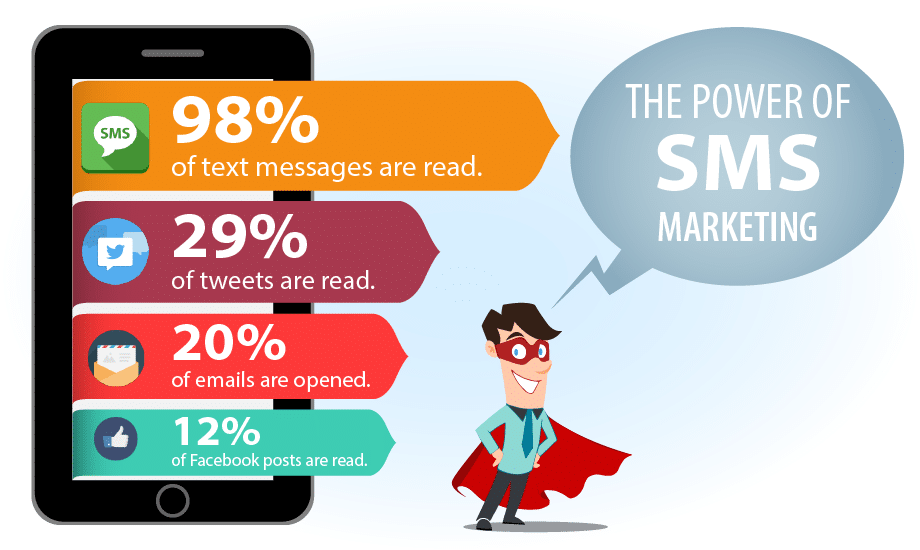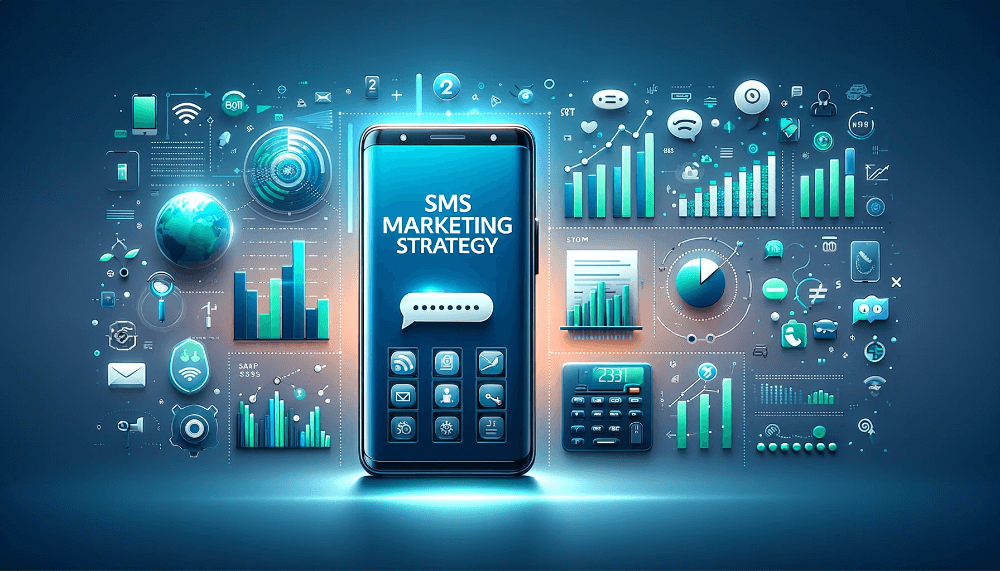📑 Table of Contents
- The Power of SMS Marketing
- Crafting a Winning SMS Marketing Strategy
- Compliance and Best Practices
- Integrating SMS with Your Overall Marketing Strategy
- Measuring Success and Optimizing Campaigns
- Leveraging Technology for Enhanced SMS Marketing
- Embracing the Trends in SMS Marketing
- Segmenting Your Audience for Targeted Messaging
- Crafting Engaging Content
- Building a Strong Opt-In Database
- Continuously Innovating and Adapting
- Conclusion
In an age where digital marketing channels are abundant, SMS marketing stands out as a direct and highly effective way to reach customers. With over 5 billion people sending and receiving SMS messages globally, it’s no surprise that SMS marketing strategy has become a vital tool for businesses looking to expand their reach and deepen customer engagement.
The Power of SMS Marketing
SMS marketing involves sending promotional, informational, or transactional messages directly to customers’ mobile phones. This marketing channel boasts a staggering open rate of 98%, outperforming email and other forms of digital communication.
The immediacy and personal nature of SMS make it an invaluable tool for businesses to connect with their audience.

Crafting a Winning SMS Marketing Strategy
Developing an SMS marketing strategy requires a blend of creativity, precision, and understanding of your audience. Here are key elements to consider:
- Understanding Your Audience: Tailor your messages to align with the interests, needs, and behaviors of your target demographic.
- Personalization and Relevance: Personalized messages foster a deeper connection. Use customer data to customize messages, making each communication relevant and engaging.
- Timely and Concise Messages: The timing and brevity of your SMS are crucial. Ensure your messages are short, clear, and sent at times when they are most likely to be read and acted upon.
- Clear Call-to-Action (CTA): Every SMS should guide the recipient toward a specific action, whether it’s visiting a website, taking advantage of a sale, or engaging with new content.
Compliance and Best Practices
Adhering to legal requirements and ethical practices is paramount in SMS marketing. This includes obtaining consent from recipients and providing clear opt-out options. Respecting privacy and preferences not only builds trust but also aligns with regulations like GDPR and TCPA. Read more about what SMS compliance is.
Integrating SMS with Your Overall Marketing Strategy
SMS marketing should not exist in a vacuum. Integrating it with other marketing channels like email, social media, and offline advertising can create a cohesive and powerful marketing mix. For instance, use SMS to drive traffic to your social media channels or website.
Measuring Success and Optimizing Campaigns
To gauge the effectiveness of your SMS marketing strategy, track metrics such as delivery rates, open rates, click-through rates, and conversion rates.
Analyze this data to understand what resonates with your audience and continuously refine your strategy for better results.
Leveraging Technology for Enhanced SMS Marketing
Modern SMS marketing platforms offer features like automation, segmentation, and analytics. These tools can help streamline your campaigns, target specific customer segments more effectively, and provide valuable insights into campaign performance.
Shortcodes, typically 5-6 digit numbers, are used for mass text messaging. They are easier to remember and can significantly increase customer engagement. Understanding what an SMS short code is and how to effectively use it in your campaigns can give you an edge in your marketing efforts.
Embracing the Trends in SMS Marketing
Staying abreast of the latest trends is crucial in SMS marketing. This includes the use of rich media like images and videos, interactive elements like polls or surveys, and AI-driven personalization.
Embracing these trends can enhance the effectiveness of your campaigns, making them more engaging and memorable for your audience.
Segmenting Your Audience for Targeted Messaging
Segmentation is a key component of a successful SMS marketing strategy. By dividing your audience into specific groups based on demographics, purchasing behaviors, or engagement levels, you can tailor your messages to suit their specific needs and interests.
This targeted approach not only improves the relevance of your messages but also increases the likelihood of conversion.

Crafting Engaging Content
The content of your SMS messages is vital. It should be compelling, clear, and aligned with your brand voice. Use strong action verbs, create a sense of urgency where appropriate, and always ensure that your message adds value to the recipient. Remember, each message should enhance the customer’s perception of your brand.
Building a Strong Opt-In Database
The foundation of effective SMS marketing is a robust opt-in database. Encourage customers to sign up for your SMS alerts through your website, social media platforms, or in-store promotions.
Offer incentives for signing up, such as exclusive discounts or early access to sales, to grow your list organically.
Continuously Innovating and Adapting
The digital landscape is constantly evolving, and so should your SMS marketing strategy. Keep experimenting with different message formats, timings, and content types.
Pay close attention to customer feedback and be willing to adapt your strategy to meet changing preferences and technological advancements.
Conclusion
SMS marketing offers a unique opportunity to reach customers directly, with personalized and timely messages. As mobile usage continues to rise, SMS marketing becomes increasingly important for businesses looking to connect with their audience in a meaningful way.
By crafting a well-thought-out SMS marketing strategy and staying attuned to best practices and technological advancements, businesses can unlock the full potential of this powerful marketing channel.
